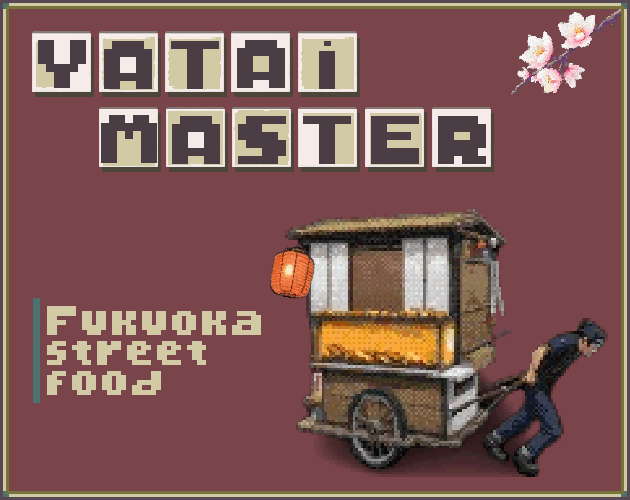Building relationships: The social component
Originally published on: Building relationships: The social component.
In earlier posts, I mentioned that one of the inherent attributes of yatai is the social component that classifies them as a “third place”.
Of course, in a yatai, everything revolves around food, but that's just the entry point to building lasting relationships and turning occasional diners into regular customers—customers who have names, jobs, hobbies, families, and stories, essentially: getting to really know them.
This social aspect is what I want to focus on, and I have the perfect source of inspiration: Ramenbashi.

Adding personality to the game
In an attempt to develop the social component, it is essential (imperative) that each customer has their own personality, which makes, for example, certain things they like and others they don't.
This way, we can encounter customers who prefer to eat quietly, without being disturbed, highly focused on the quality of the food. Others may be the opposite: they love the noise, chatting, and watching a baseball game on TV while listening to the nightly news on the radio.
The personality of the yatai owner, who shapes the atmosphere of the establishment through their tastes, preferences, and concessions, will, along with each customer's personality, determine the level of satisfaction.
Since every customer in the game is unique and potentially a regular, I found it unnecessary to implement a random avatar generation system.

Customer satisfaction
In Yatai Master: Fukuoka Street Food, customers don't just come for the ramen or yakitori, but for the cozy atmosphere and the human interactions offered by the yatai owner and the regular customers.
I thought a good way to measure this social aspect is by developing the customer satisfaction level based on different components, such as:
- Quality of the food;
- quality of the service;
- the atmosphere of the yatai.
These three components, combined, make up the final satisfaction level, which will determine not only how likely it is for the customer to return but also how committed they are to the community, helping other customers feel welcome and connect authentically with the environment.

“The customer is God”
In Japan, the philosophy of “the customer is God” has been a cornerstone of customer service: every individual who enters a business should be treated with near-reverential respect. However, this approach isn’t always positive, as it has led to situations where some customers take advantage of this deference to mistreat service workers.
Customer satisfaction is the central leitmotiv for many business owners, and yatai are no exception.
Ramenbashi: the inspiration
This negative aspect of the “customer is God” concept is well reflected in the game Ramenbashi. In this game, the owner of a ramen shop (Kotobuki Hidezo, a former soldier who must take over the family business after his father's death) interacts with customers' complaints and feedback.

In Ramenbashi, players must decide how to handle both reasonable customers and those who take advantage of their position. The game offers a dynamic where complaints are not always opportunities for improvement, but rather challenges that must be strategically managed.

If you want to learn more about the hidden gem that is Ramenbashi, here’s a link to an article by Eastern Mind: J A P A N o F I L E S # 9 – Under the Tokyo Sky.
Encouraging interaction
Customer satisfaction is essential for success, but players must also learn to balance the irrational expectations of some customers with the need to maintain a welcoming atmosphere and a positive reputation.
For this reason, the yatai owner has the opportunity to interact with customers, allowing players to develop strategies that reflect the reality of many yatai owners, who face the challenge of satisfying all their customers without letting abuse ruin the atmosphere of their business.

Since developing a strategy to achieve high satisfaction levels is necessary, it seems appropriate to provide players with a tool that encourages interaction with customers to get to know them and, in doing so, deliver what they want.
Yatai Master
Navigate the challenges of operating a yatai, balancing limited supplies and hungry customers in a cozy mobile kitchen.
| Status | In development |
| Author | oh! |
| Genre | Simulation |
| Tags | 2D, Cooking, japan, Pixel Art, yatai |
| Languages | English |
More posts
- Redesigning Yatai Master’s aesthetic and quality system45 days ago
- The Road to Beta.78 days ago
- Progress in dialogue writingJan 31, 2025
- The quest for better ingredientsJan 28, 2025
- Splash screenJan 09, 2025
- Bringing Yatai to life with mediaJan 02, 2025
- Behind Yatai Master’s InterfaceOct 17, 2024
- Yatai as story hubs. Developing tales around japanese street stallsOct 17, 2024

Leave a comment
Log in with itch.io to leave a comment.